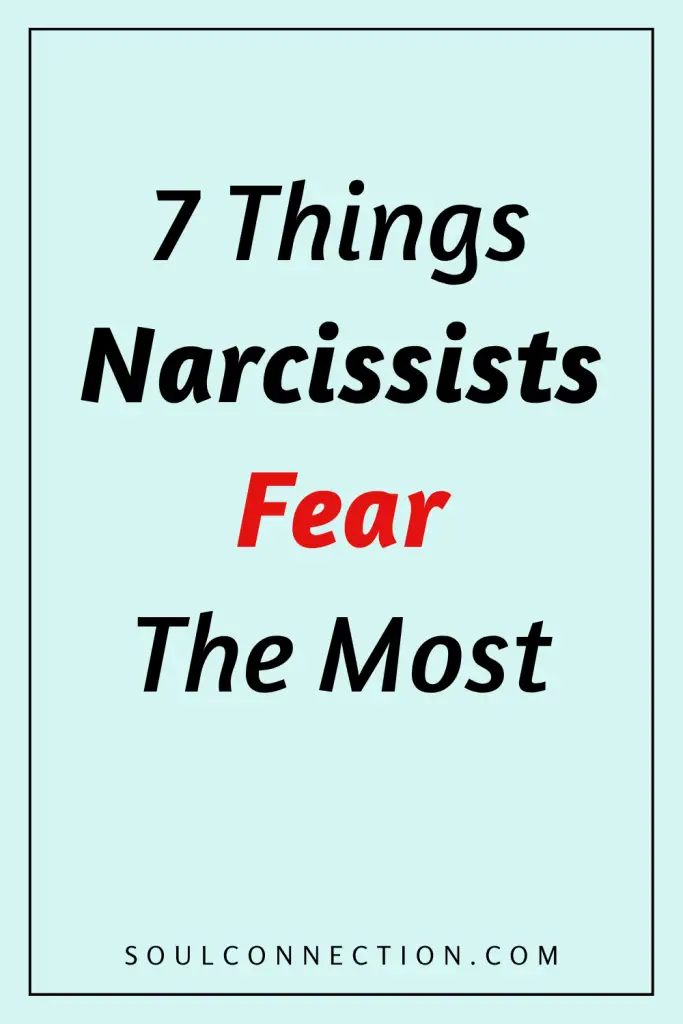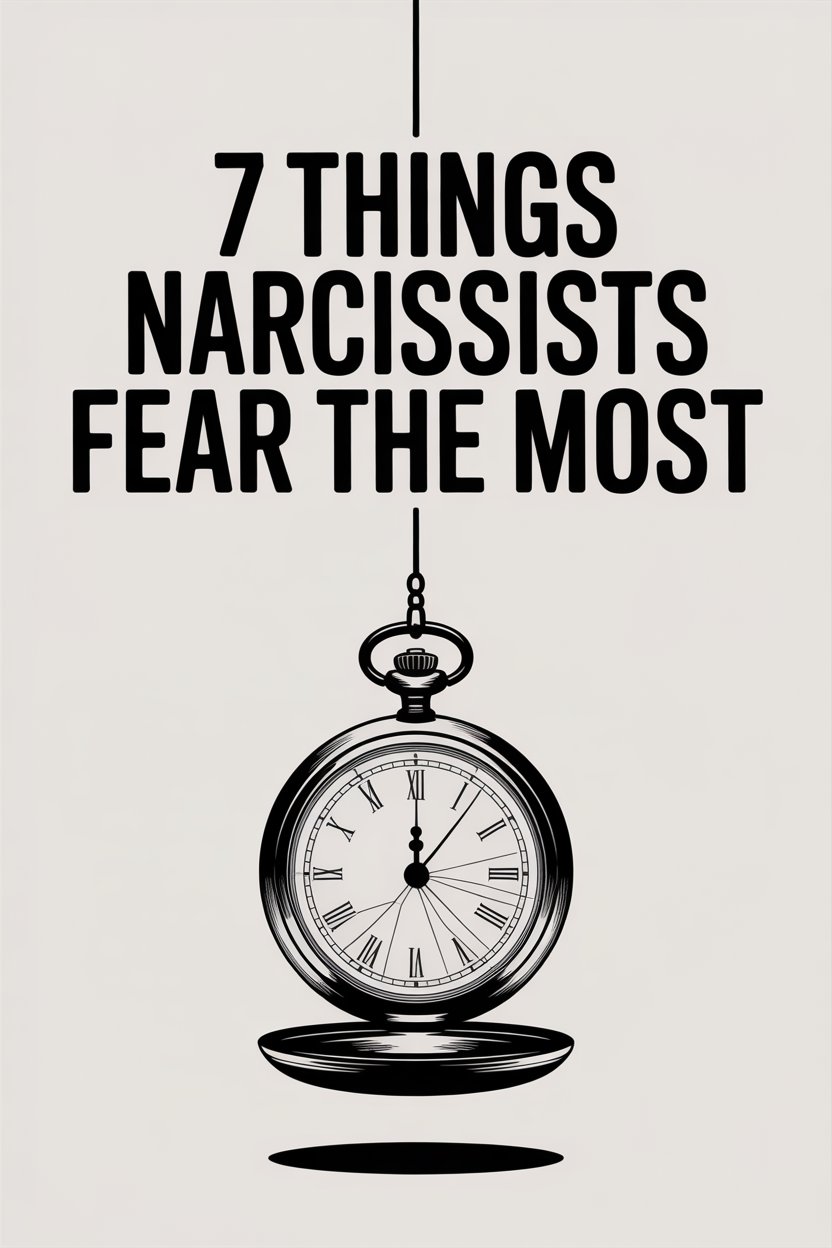Narcissists: champions of the selfie, self-appointed royalty of every conversation, and, as it turns out, absolute fraidy-cats about a handful of things.
If you’ve ever tangled with a true blue narcissist, you know it’s less “mirror, mirror on the wall,” and more “everyone, everywhere, keep telling me I’m the fairest—forever.”
But what really rattles these self-anointed emperors of self-esteem? Keep reading and you’ll have all the tea—and maybe a few ideas for reclaiming your peace.
1 Exposure of Their True Self
Every narcissist wears a mask. Sometimes it’s a glitzy, charming, “I’m-the-most-original-person-you’ll-ever-meet” kind of mask. Other times it’s the Victim Supreme, starring in their own private soap opera where everyone else is the villain.
Strip back the showmanship, though, and you’ll find someone terrified of being unmasked—of letting anyone see the insecurity, shame, and self-doubt lurking underneath.
This is the emotional equivalent of being spotted in the rain when you’ve just paid for a blowout. They dread being seen for what they really are: not all-powerful, not all-knowing, and certainly not as special as they insist.
Wonder why narcissists double down (or spiral into rage) when you call out their lies? There’s your answer.
2 Being Ignored
For a narcissist, attention is oxygen. They don’t just crave it—they depend on it, like a phone that needs recharging every hour.
So, what’s one of their greatest fears? Being ignored. The cold shoulder. Not even a glance. It’s not just irritating; it’s petrifying.
Take away the attention, and narcissists feel invisible. If people are indifferent to their drama, who will validate their existence? The answer, of course, is horrifying to them: no one.
That’s why they’ll escalate antics or provoke conflict just to get noticed. Negative attention is better than no attention at all.
3 Criticism (Especially the Constructive Kind)
Everyone winces at criticism, but narcissists treat it like a personal apocalypse. Even the mildest “Hey, you missed a spot,” is met with biblical-level indignation.
Why? Criticism pokes holes in the grand story they’ve written about themselves. It suggests they might not be flawless, and that’s simply intolerable. Constructive feedback? Forget it.
Unless you enjoy emotional tantrums, walking on eggshells, or having your words twisted into high art, tread carefully. Narcissists react to criticism with denial, blame-shifting, or full-blown rage.
Oddly enough, the more gentle and helpful your feedback, the more threatened they become. It’s almost impressive, in a tragic sort of way.
4 Losing Control
If there’s one thing a narcissist loves more than hearing themselves talk, it’s being in charge. Control means they can keep the spotlight, set the narrative, and manipulate outcomes to suit their ever-evolving needs.
Loss of control? That’s the stuff of their nightmares. The moment a partner, friend, or even a colleague steps out from under their thumb, the narcissist gets twitchy.
Suddenly, the rules change. Silent treatments, guilt trips, and emotional fireworks appear out of nowhere.
It’s all an exhausting attempt to yank back whatever power is slipping away. Don’t be surprised if boundaries are treated like suggestions—or ignored entirely.
5 Rejection
Rejection to a narcissist is like garlic to a vampire. Every “no” is a personal affront. Every “I’m not interested” is a full-scale crisis.
Underneath all that bravado, narcissists are deeply insecure.
They need constant reminders of their own worth, and rejection is the opposite of that. It’s proof (in their minds, anyway) that you don’t see their dazzling qualities—which, frankly, is unacceptable.
Cue the over-the-top attempts to win you back, or, if that doesn’t work, a smear campaign worthy of a soap opera villain.
Narcissists take rejection straight to heart, because it threatens the story they’re desperate to believe: that everyone wants them, needs them, and can’t live without them.
6 Accountability
Nothing sends a narcissist running like a good old-fashioned reckoning. Being held responsible for their actions, words, or the occasional emotional hurricane they whip up? Hard pass.
Accountability means facing consequences, admitting mistakes, and—gasp!—maybe even apologizing. None of these fit into the narcissist’s carefully curated self-image.
Instead, they’ll dodge, weave, and gaslight in an Olympic-level effort to avoid blame.
You might hear, “You’re too sensitive,” or, “That never happened,” or even, “If you hadn’t made me angry, I wouldn’t have done that.” Owning up isn’t just scary; it’s existentially threatening.
Accountability means people see through them, and the idea of transparency is about as appealing as a root canal.
7 Genuine Intimacy
Everyone wants to be loved, right? Well, narcissists want it too—on their terms. But true intimacy? Emotional vulnerability? That’s a bridge too far.
Getting close means exposing weaknesses. It’s about mutual trust, honesty, and, worst of all, admitting you’re not a superhero. Narcissists avoid this the way most people avoid expired sushi.
Deep down, they fear that if someone really sees them, the love will vanish. Their solution? Keep connections shallow, keep emotional armor on, and never let anyone too close. It’s lonely at the top, but at least it’s safe.
What Does This Mean for Your Relationship Tonight?
If you’re tangled up with a narcissist—romantically, at work, or in your family—it’s not your job to fix them (spoiler: you can’t).
But understanding what makes them tick (and what makes them sweat) can put some of the power back in your hands.
Boundaries are your best friend. Starving the attention monster—at least a little—can help you reclaim your own peace.
And if you need to call a spade a spade, do so knowing you might get a tantrum, but you’ll also be chipping away at the fear fortress they’ve built around themselves.
The trick isn’t to play their game. It’s to know the rules, then decide if you want to keep playing—or find a better table.
After all, nobody needs to audition for the role of supporting actor in someone else’s never-ending drama. There are better scripts out there—and you get to write the next one.


